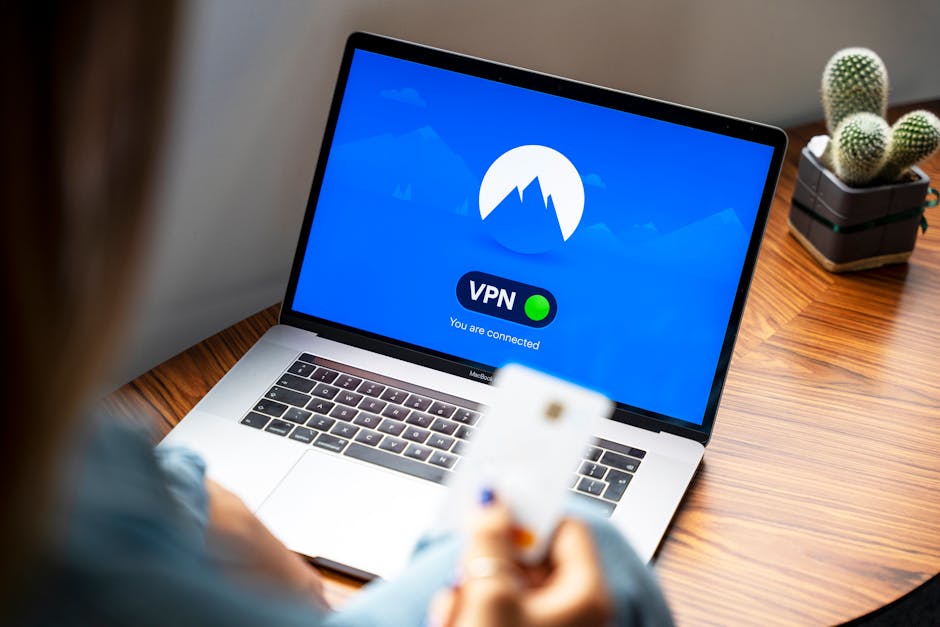It’s 2025, and well, the internet, it’s still pretty much the place where everything happens, isn’t it? Like, if you got a business, big or small, or even just some idea you want to get out there, you gotta get seen online. It’s just how it goes now, or at least it feels that way to most everyone. You can have the best widgets, the most interesting service, or a truly neat blog, but if nobody knows it exists, then it’s just kinda… sitting there. Waiting. And waiting. Which, you know, isn’t really good for business growth or anything, generally speaking. So, what do people do? They try to get their stuff in front of other people, often through things like advertising. And when we’re talking about search engines, about putting your messages right in front of someone when they’re actually looking for something specific, that’s where something called Google PPC often comes up. It’s like a thing that lots of places, big and little alike, are using to make sure they’re not just, you know, whispering into the void, but actually getting a word in edgewise. It’s a way for your business to maybe get some attention when people are searching for things that are related to what you do. Not everyone understands all the bits and pieces of it, but it’s really rather simple at its heart.
So, Like, What Even Is Google PPC, Really?
Alright, let’s get into what this Google PPC actually means, ’cause sometimes the names for these online marketing things can make them sound much more complicated than they actually are. PPC, see, it just stands for “Pay-Per-Click.” That’s it. Simple enough, right? What this means is that with Google PPC, you pay Google only when someone clicks on your advertisement. Not when it shows up on someone’s screen, not when they scroll past it, but when they actually click it. Which, if you think about it, is a pretty neat setup for advertisers, because you’re only paying when someone has shown some sort of actual interest in what you’re putting out there. It’s a targeted sort of advertising, considered to be something quite direct, where your ads pop up, normally, right there in the Google search results page.
So, when you go to Google and you type in, say, “best coffee maker 2025” or “dog grooming near me,” you usually see a few results at the very top, sometimes also at the bottom, that have a little “Ad” label next to them. These, those are Google PPC ads. They’re there because someone, a business, has told Google, “Hey, when people search for that particular phrase, or something pretty close to it, I want my ad to show up.” And then they’ve set a bit of money aside, saying how much they’re willing to pay for each click. It’s a kind of auction system, you see, but it happens super fast, in milliseconds, every single time someone types something into Google. The winning ads, they get to appear, and the business only gets charged if someone actually clicks on it. This system, for getting your messages seen by people who are actively seeking out things, is what a whole lot of businesses are relying on right now, and probably will be for a good while, too. It puts you in a place where people are already looking to perhaps spend some cash or find out some info.
How This Whole Google Ads Thing Actually Functions Day-to-Day
Now that we got the basic idea of what Google PPC is, let’s talk about how it works, like, in the real world when you’re setting one of these up. It isn’t just about putting an ad out there; there’s a few moving parts to it that, you know, sort of make it tick. Generally speaking, when you decide you want to use Google’s ad system, which is officially called Google Ads (PPC is just the payment model within it, usually), you start by picking your keywords. These are the words and phrases that people type into Google. So, if you sell handmade pottery, you might pick “handmade pottery,” “unique ceramic bowls,” “buy pottery online,” things like that. The closer your keywords are to what someone is searching for, the better your chances, normally.
Then comes your actual ad. This is the little bit of text that shows up in the search results. It needs to be catchy, obviously, and tell people what you’re offering, and, you know, hopefully get them to click. You’ll usually also include a link to a specific page on your website – a “landing page” it’s called – that’s super relevant to what your ad is promising. Like, if your ad is for “unique ceramic bowls,” you wouldn’t send them to your homepage, but right to the page with all your ceramic bowls. It makes sense, right? Getting people to the right place quickly is, normally, a pretty big deal.
After that, you set your bids. This is how much you’re willing to pay for a single click on your ad. Google runs an auction, remember? So, the highest bid generally gets a better spot, but it’s not just about money. Google also looks at how relevant your ad is to the searcher, how good your landing page is, and how likely your ad is to be clicked. They call this sort of a “Quality Score” but it’s really just Google making sure what they show people is useful. So, even if you don’t have the biggest budget, a really good, super relevant ad can sometimes beat out a higher-bidding, but not-so-great, ad. This mix of bid amount and ad quality, it determines where your ad ends up on the results page, or if it shows up at all. It’s a bit more complex than just waving money around, which is good, for the searchers anyway.
Why Bother with Google PPC, Anyway? Or, The Good Stuff It Brings
So, with all that going on, with picking words and writing ads and bidding and everything, a person might ask, why go through all that for Google PPC? What’s the point? Well, there’s a fair few good reasons, generally speaking, why businesses big and small find this kind of advertising to be quite, um, useful for them. For one, it’s about getting your stuff in front of folks who are looking for exactly what you’ve got. Think about it: someone types in “emergency plumber near me.” They aren’t just browsing; they have a problem and they need it fixed, probably right now. If your plumbing business ad pops up right then, that’s a very hot lead, you know? It’s not like a billboard on the side of the road where anyone, whether they need a plumber or not, sees it. It’s highly focused.
Another good thing is that it’s quite fast. When you start a campaign, your ads can normally start showing up almost immediately, like, within minutes of being approved. This is really different from things like trying to get your website to rank naturally in Google’s search results, which can, honestly, take months and months of work. If you need to get the word out about a new product, or a special offer, or just, you know, get some people looking at your website quickly, PPC is a pretty direct path to doing that. It gives you a kind of quick access to the top spots, often.
Then there’s the control you get over your money. With Google PPC, you set a daily budget, or a monthly one, and Google pretty much sticks to it. You won’t wake up one day to a massive, unexpected bill because your ad went viral in a way you didn’t plan. You decide how much you’re willing to spend each day, and once that budget is hit, your ads just stop showing for that day. It’s a pretty neat way to keep a lid on things. Plus, you can see all sorts of numbers about how your ads are doing – how many people saw them, how many clicked, how much each click cost. You can look at all these figures to figure out what’s working and what’s not, and then you can make adjustments to maybe, you know, try and get a better outcome for the money you are spending. It’s a very direct way of advertising, with lots of knobs and dials to fiddle with.
Getting Started with Your Own Google PPC Stuff (Sort Of)
Okay, so you’re thinking this Google PPC thing, it sounds like something you might want to try out for yourself, or for your company. Where do you even begin? Well, it’s not super complicated to just get going, but it does take some thought, it is to be understood that it’s not just a set-it-and-forget-it kind of deal. First thing’s first, you’ll need a Google Ads account. That’s where you’ll do all your managing, typically. You link it up to a Google account you already have, or just make a new one. It’s not a big hurdle, often taking just a few minutes.
Once you’re in, you’ll start to set up your first “campaign.” Think of a campaign as like, a big folder for all your ads related to a certain goal or product line. So, if you sell both shoes and hats, you might have one campaign for “Shoes” and another for “Hats.” Inside each campaign, you’ll have “ad groups,” which are smaller folders for very specific groups of keywords and the ads that go with them. Like, in your “Shoes” campaign, you might have an ad group for “Running Shoes” and another for “Dress Shoes.” It helps keep things really organized, it turns out, so your “Running Shoes” ads only show for “running shoe” searches, not “dress shoe” searches, which is just better for everyone.
Then, you gotta pick those keywords we talked about earlier. Spend some time on this, like, really think about what people would type into Google to find what you offer. Google actually has some tools within the Ads system to help you find ideas, which is quite helpful. After that, you write your ads – keep them short, sweet, and to the point. Tell people why they should click on your ad. And don’t forget that landing page, making sure it’s exactly where someone would want to go after clicking your ad. Setting your budget and your bids, that’s next. It’s normally a good idea to start small, see how things go, and then you can always, you know, maybe put a bit more money in later if it’s working out for you. It’s all about starting, watching, and then making tweaks as you go along. It takes a bit of time, sure, but the potential is generally there.
Some Common Kinks and Things to Watch Out For
Now, while Google PPC is a pretty neat way to get your business seen, it’s not like, totally without its little bumps in the road, you know? It’s not some kind of magic wand where you just wave it and money appears. One of the main things you gotta look out for, really, is the competition. Depending on what you’re selling, or what service you’re offering, there could be a whole bunch of other businesses trying to show their ads for the exact same keywords. This can drive up the cost of clicks, because everyone is bidding against each other. So, what worked really well for a low price last year might cost a bit more this year. You just gotta, sort of, keep an eye on it and maybe try different keywords sometimes, or refine your ads.
Another thing is that you actually have to pay attention to your campaigns. It’s not a setup that you can just, like, launch and forget about forever. You need to log in regularly, see how things are going, check your search terms – what people are actually typing when your ads show up – and make adjustments. Maybe some of your keywords aren’t performing well, or maybe you’re spending money on clicks that aren’t turning into sales. If you don’t stay on top of it, you could end up, you know, just pouring money into something that isn’t really giving you the results you want. This regular check-in, normally, is where a lot of the actual effort comes in, after the initial setup.
And then there’s the learning curve, which, for some people, it can be a little steep at first. There are lots of settings, lots of reports, lots of options. It can feel a bit much if you’re new to it all. But the good news is there are tons of resources out there, and Google itself has lots of help documents, and normally, you just learn as you go, making small changes and seeing what happens. It’s a process, usually, one of figuring out what works for your specific situation. So, while there are things to watch out for, they’re usually manageable, it is considered to be that with a bit of patience and some regular checking in, you can usually navigate them pretty well.
So, in the end, Google PPC really is a pretty powerful tool for advertising in 2025. It’s about being right there when people are looking for something, only paying for actual interest, and having a good deal of control over your spending. It takes a bit of effort, obviously, and some willingness to understand how it all plays out, but for many businesses, it’s a direct route to getting seen and finding new customers in a very crowded online space. It is a way, sometimes the quickest way, to move from just being another website to being one people actually notice and click on.
FAQ: What is Google PPC?
What is Google PPC, exactly?
Google PPC is, really, a system where businesses pay Google to show their ads in search results, but they only pay when someone actually clicks on one of their ads. That’s why they call it Pay-Per-Click. It’s a way for your business messages to appear right at the top, or sometimes the bottom, of Google’s search results when people are searching for certain words or phrases.
What is Google PPC’s main point for businesses?
The main point of Google PPC for businesses is, generally, to get noticed by people who are already looking for what that business offers. If someone is searching for “best dog food,” a dog food company wants their ad to show up right then, because that person is probably ready to buy. It’s a very direct way to get potential customers to your website quickly.
What is Google PPC’s typical cost structure?
Generally speaking, with Google PPC, you set a budget, usually a daily one, for your ads. You also decide how much you’re willing to pay for each click on your ad. Google then runs an auction behind the scenes every time someone searches, and if your bid and ad quality win, your ad shows. You only get charged when someone clicks, and the cost for each click can vary a lot, depending on things like how popular your keywords are and how much your competitors are bidding.
What is Google PPC doing when it comes to competition?
When we talk about Google PPC and competition, it’s generally about other businesses trying to show their ads for the same keywords as you. This competition can make the cost of each click go up, because everyone is bidding against each other for those top spots. It’s why businesses have to pay attention to their ads, always trying to make them better and more relevant, so they can get good spots without having to spend a fortune, if possible.
What is Google PPC good for, and what should I watch out for?
Google PPC is good for getting fast, targeted visibility for your business, allowing you to reach people who are actively looking for your products or services. You have good control over your spending. What you should watch out for, though, is the cost of clicks due to competition, and the fact that you really need to keep an eye on your campaigns. It’s not something you can just set up and forget about; it needs regular checking and adjustments to make sure your money is being spent effectively.



